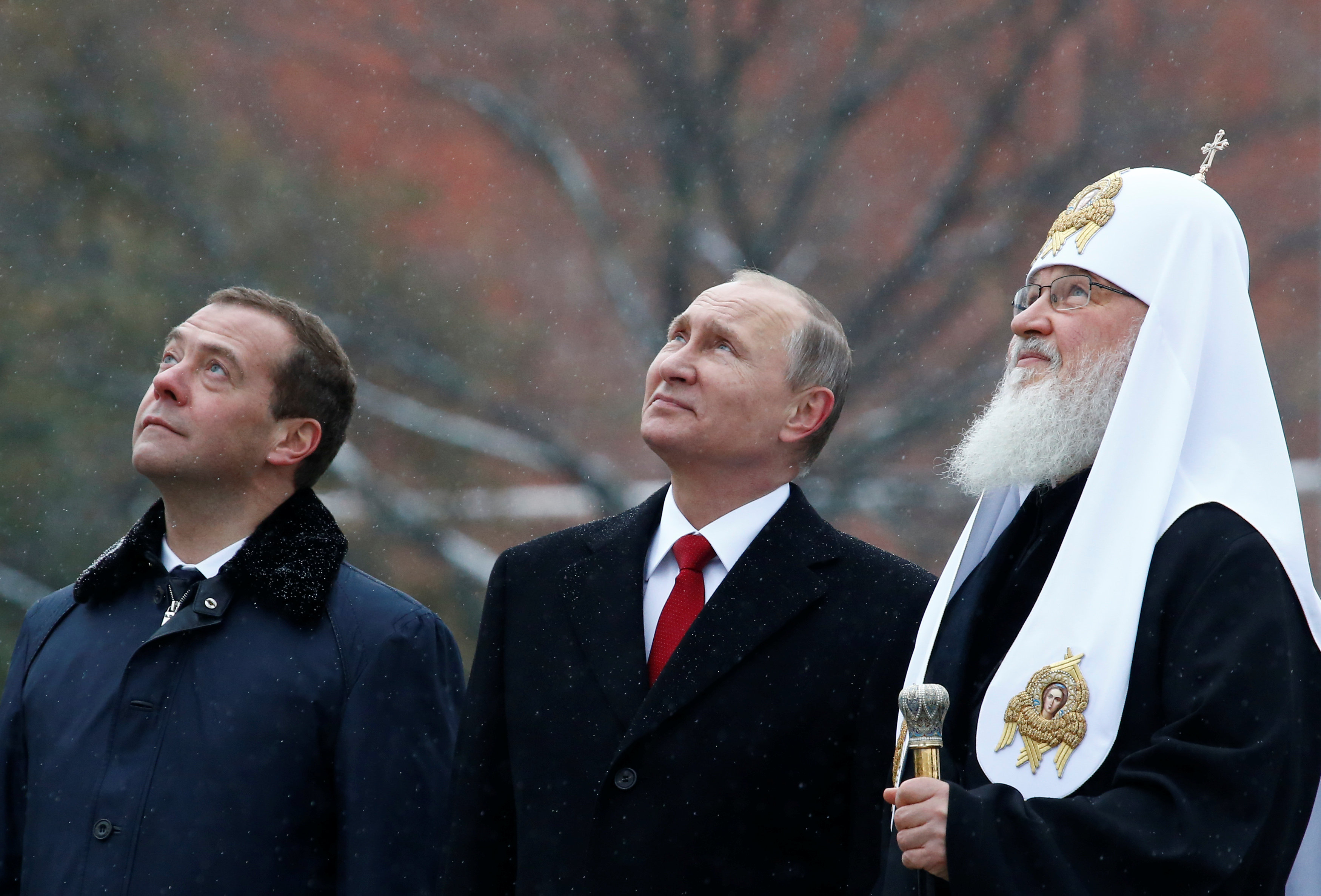By Vladimir Soldatkin
MOSCOW (Reuters) – Russian President Vladimir Putin on Friday unveiled a monument to the medieval prince who brought Christianity to the precursor of the Russian state, a figure being embraced by the Kremlin as a symbol of national identity.
Unveiling the statue to Grand Prince Vladimir near the Kremlin walls, Putin said the prince had been the spiritual founder of the Russian state.
“Today, our duty is to jointly stand up to modern challenges and threats, relying on the priceless traditions of unity and accord, moving forward and safeguarding the continuation of our 1,000-year history,” he said.
The 17.5 meter (56 foot) -tall bronze monument features prince Vladimir in flowing robes with a sword in his left hand and a cross in his right.
Grand Prince Vladimir was a ruler of Kievan Rus, the territory in modern-day Ukraine from which the Russian state would later emerge. In 988, he adopted Orthodox Christianity as the faith of his people, who were until then largely pagan.

Russian President Vladimir Putin, Prime Minister Dmitry Medvedev and Patriarch Kirill, the head of the Russian Orthodox Church, attend a ceremony to unveil a monument of grand prince Vladimir I, who initiated the christianization of Kievan Rus’ in 988AD, on National Unity Day in central Moscow, Russia, November 4, 2016. REUTERS/Sergei Karpukhin
Putin, in the 16 years since he became president, has sought to build a spirit of national unity and pride, with a new emphasis on traditional Russian values.
His critics say he uses those values as a pretext to justify his stand-off with the West, which he accuses of trying to encroach on Russia’s sphere of influence and impose liberal social attitudes on its people.
The site of the new statue is between the red-brick walls of the Kremlin and the Lenin Library.
The unveiling coincided with National Unity Day, a public holiday created by Putin’s administration in 2004 to replace the Communist October Revolution Day, when tanks, missiles and troops used to parade through Red Square.
(Editing by Christian Lowe and Andrew Roche)
 The newly unveiled monument of grand prince Vladimir I, who initiated the christianization of Kievan Rus' in 988AD, is seen in central Moscow, Russia, November 4, 2016. REUTERS/Sergei Karpukhin
The newly unveiled monument of grand prince Vladimir I, who initiated the christianization of Kievan Rus' in 988AD, is seen in central Moscow, Russia, November 4, 2016. REUTERS/Sergei Karpukhin
